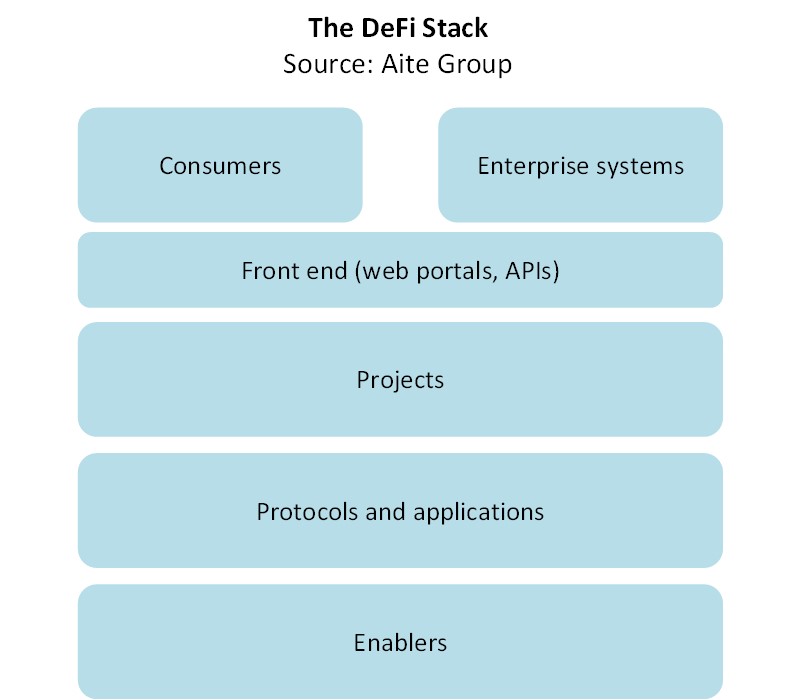Boston, October 22, 2020 – Distributed ledger technology is shaping the financial supply chain in unprecedented ways, and DeFi is tangible evidence. DeFi enables parties to trade traditional financial products without the intermediary (i.e., the financial institution), using DLT-based smart contracts and cryptocurrency tokens pegged to a fiat currency. Although DeFi is still in its infancy and mostly used for speculative purposes, new market initiatives shed some light on how DeFi protocols may make strong inward progress into (and eventually replace) current corporate banking financial models and instruments.

This report offers an introduction to DeFi and provides a projection of the likely transposition of DeFi applications to the business-to-business-oriented corporate banking space. It is based on desk research across over 20 research reports, speeches, conference materials, articles, podcasts, and webinars.
This 26-page Impact Report contains four figures and one table. Clients of Aite Group’s Wholesale Banking & Payments service can download this report, the corresponding charts, and the Executive Impact Deck.
This report mentions Aave, Augur, Banco Sabadell, Banco Santander, Bankia, Banque de France BBVA, BNP Paribas Securities Services, CaixaBank, Compound, Dharma, dYdX, Etherisc, Fuse, Goldman Sachs, Nexus Mutual, Opyn, Ren, Request, Reserve, Sygnum Bank, Synthetix, and the Monetary Authority of Singapore.
About the Author

Enrico Camerinelli
Enrico Camerinelli is a Strategic Advisor at Datos Insights specializing in commercial banking, cash and trade finance, and payments. Based in Milan, he brings a strong European focus to the Commercial Banking practice at Datos Insights. Enrico has been widely quoted by publications ranging from American Banker to the Financial Times. He has contributed editorial content to publications such as Supply Chain Europe,...
